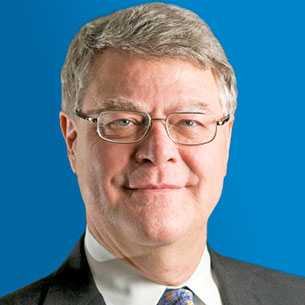“We are in sort of uncharted territory here.”
Do they teach you this phrase in clinical oncology school? I ask because so many of my survivor friends have heard it, and many of us have heard it more than once.
If you will, just for today, excuse my pedantry, I would like to analyze this phrase word by word from a patient perspective and contrast it with a phrase that I am sure is taught in research oncology school, “More study is needed.”
“We”: This is a very good start! The phrase would have a totally different impact if it were “I am in sort of uncharted territory here,” or worse, “You are in sort of uncharted territory here.” One of the worst feelings that can go along with having cancer, particularly an uncommon cancer, is the feeling of being alone. If I, as a patient, feel that my oncologist and I are in this together, I do not feel that I am alone, staring into the abyss. This word, “we,” is the very definition of the shared decision making that everyone is talking about.
“are”: Active voice! This is good, too. Compare with the passive voice in “More study is needed.” I think that “voice” in this sense says a lot about the fundamental difference between clinicians and researchers. I love researchers—some of my best friends are researchers—but I believe that being a clinician requires more courage than being a researcher. Faced with uncertainty, researchers can admit their uncertainty and wait for “more study” to make them more certain. Clinicians have to make a decision, perhaps a life-or-death decision, based on the best information available now, not the best information that may be available sometime in the future. We want our clinicians to be courageous.
“in sort of”: These are sort of good words to use. They soften the impact of the words to follow. By using them, the clinician admits that they are not completely certain, but not completely uncertain either. Most of us want our physicians to be honest with us about their uncertainty, but we do not want them to be as uncertain (and as frightened) as we usually feel.
“uncharted territory”: This was a little unnerving the first time I heard it, but it was encouraging, too. There is the implication that someday, maybe even within our lifetimes, the territory may be charted. It feels a little heroic to be entering uncharted territory. Entering uncharted territory is something that frequently happens in Westerns and other heroic tales. In those tales, the protagonist usually enters with a trusted guide, and things turn out alright after many challenges and hardships.
“here.”: This word emphasizes that we are not dealing with something abstract. We are dealing with something here and now, and we are not going to try to ignore it.
So thank you for listening to that obsessive exegesis. I have just told you how I, an admitted obsessive, relate to your words, but might other people relate to them differently? Of course. In psychiatry, we often contrast “obsessive personalities” with “histrionic personalities.” The basic distinction is that under stress, obsessive people tend to get over-focused on thoughts and under-focused on feelings, while histrionic people do just the opposite. I think that this distinction, though, represents more of a continuum than a dichotomy. All of us interpret every communication both with our head and with our heart. As a clinician, you need to speak to both. This is another way in which your job is harder than that of a pure researcher.
Verbal communications speak mainly to the head; nonverbal communications speak more to the heart. The way that you say the same words (words such as, “We are in sort of uncharted territory here”) can feel either like, “I have no idea what to do next. Good luck,” or like, “I will be your trusted guide as we enter this frightening place, and I protect you with all the skills I possess.”
A famous psychologist, Carl Rogers, looked at lots of therapists doing lots of different brands of psychotherapy and concluded that those who really helped their patients were those who related to their patients with “empathy, genuineness, and non-possessive warmth.” When I do not know what to say to a patient in psychotherapy, which is actually fairly often, I remind myself that if I am relating to them with these qualities, I will probably be helpful, even if I do not say exactly the right thing.
I believe deeply in the power of words. The words “We are in sort of uncharted territory here” are very powerful words indeed. When you convey them with empathy, genuineness, and non-possessive warmth, you are my courageous and trusted guide, and I will follow you even to the Valley of the Shadow of Death.


Comments
Kovilo Bhikkhu
Jun, 14 2016 11:15 PM
Wow! “empathy, genuineness, and non-possessive warmth.”
'empathy' - a mixture of compassion (karuna) in another's sorrows and sympathetic joy (mudita) in their joys.
'genuineness' - a determination and inclination towards honesty and truth (sacca)
'and' - a nice conjunction searching for cohesion and inclusivity
'non-possessive warmth' - loving-kindness (metta) without the clinging-attachment (upadana)
Sounds like a recipe for happiness pie.
Thank you for the article